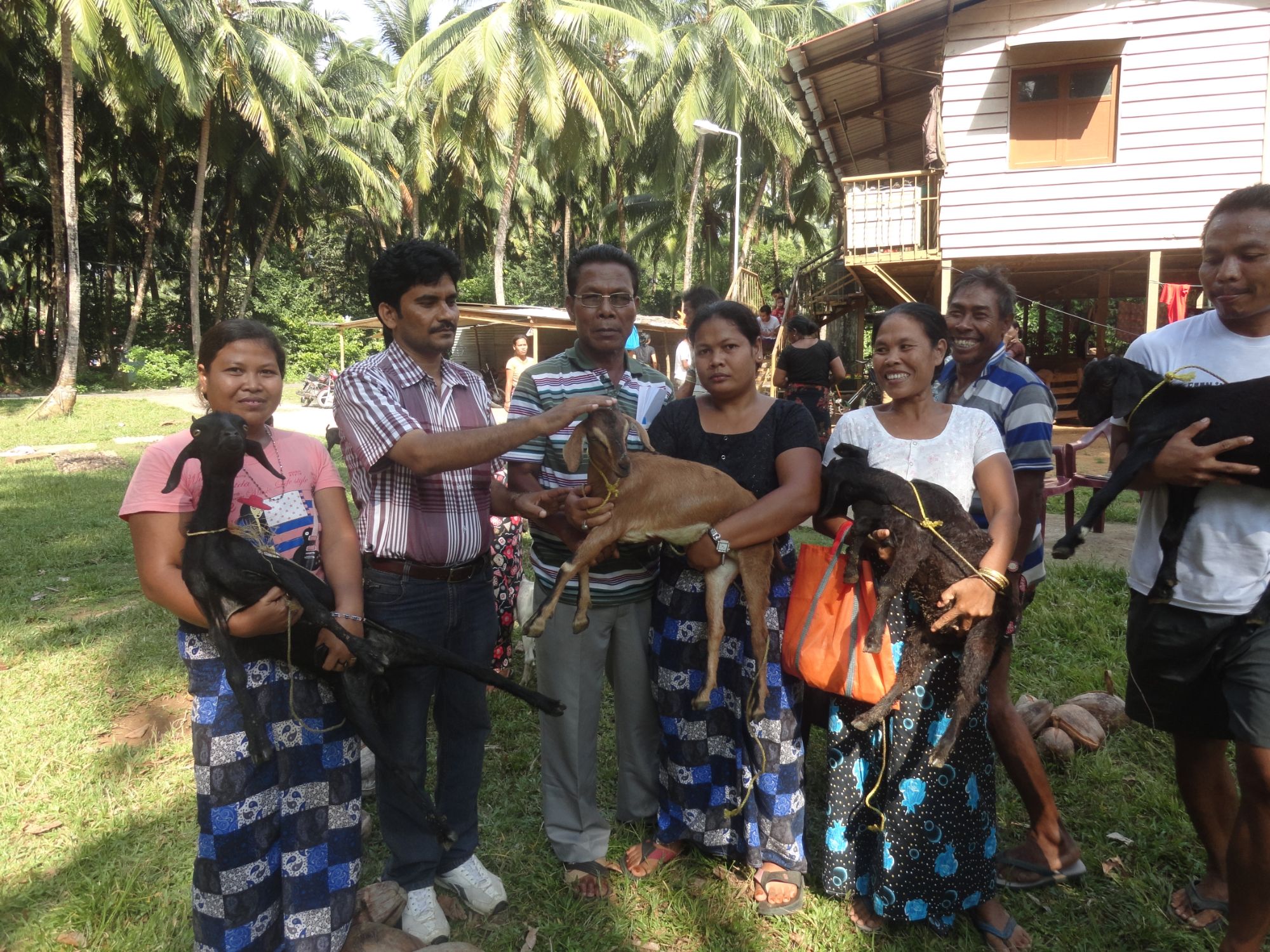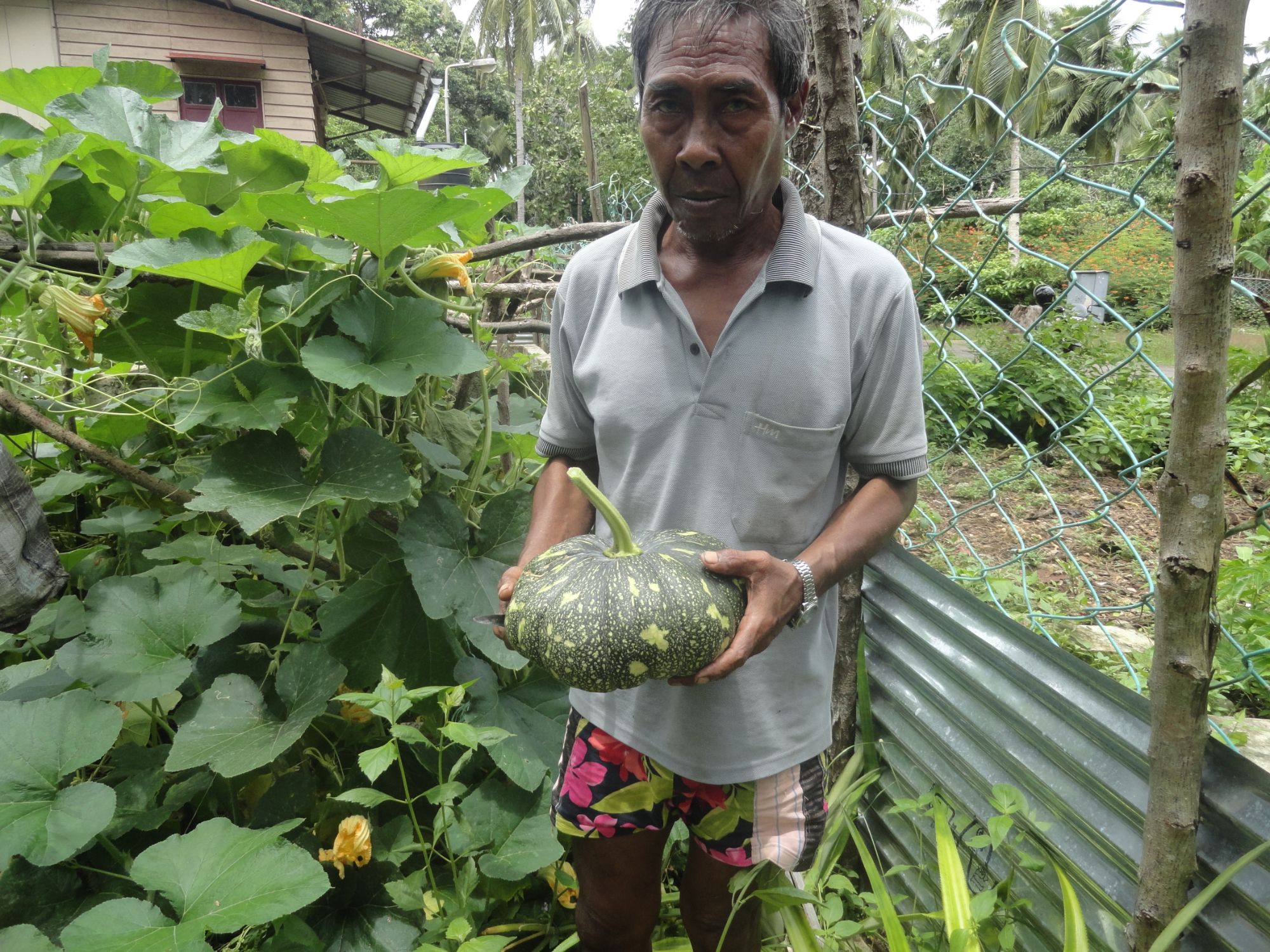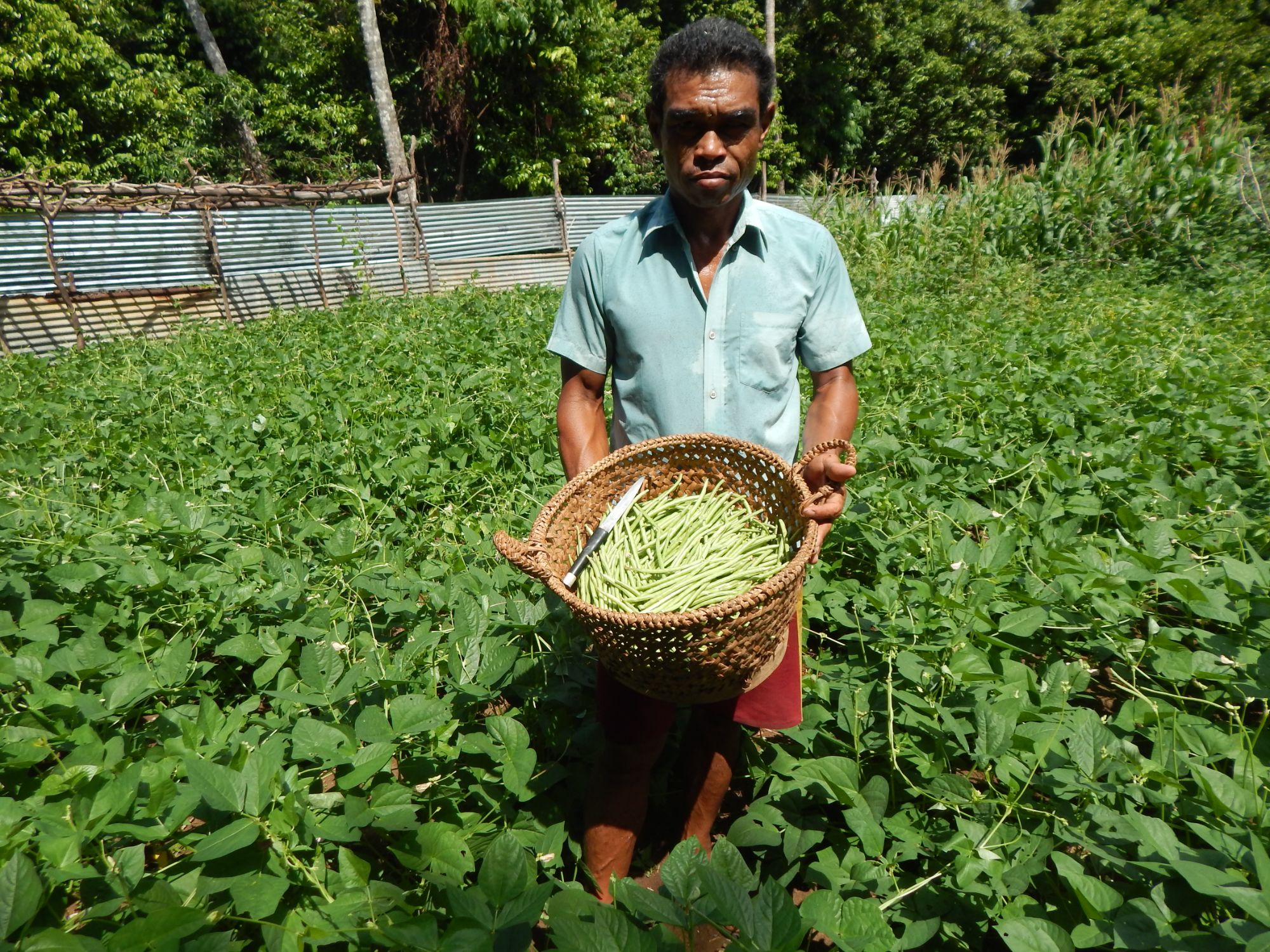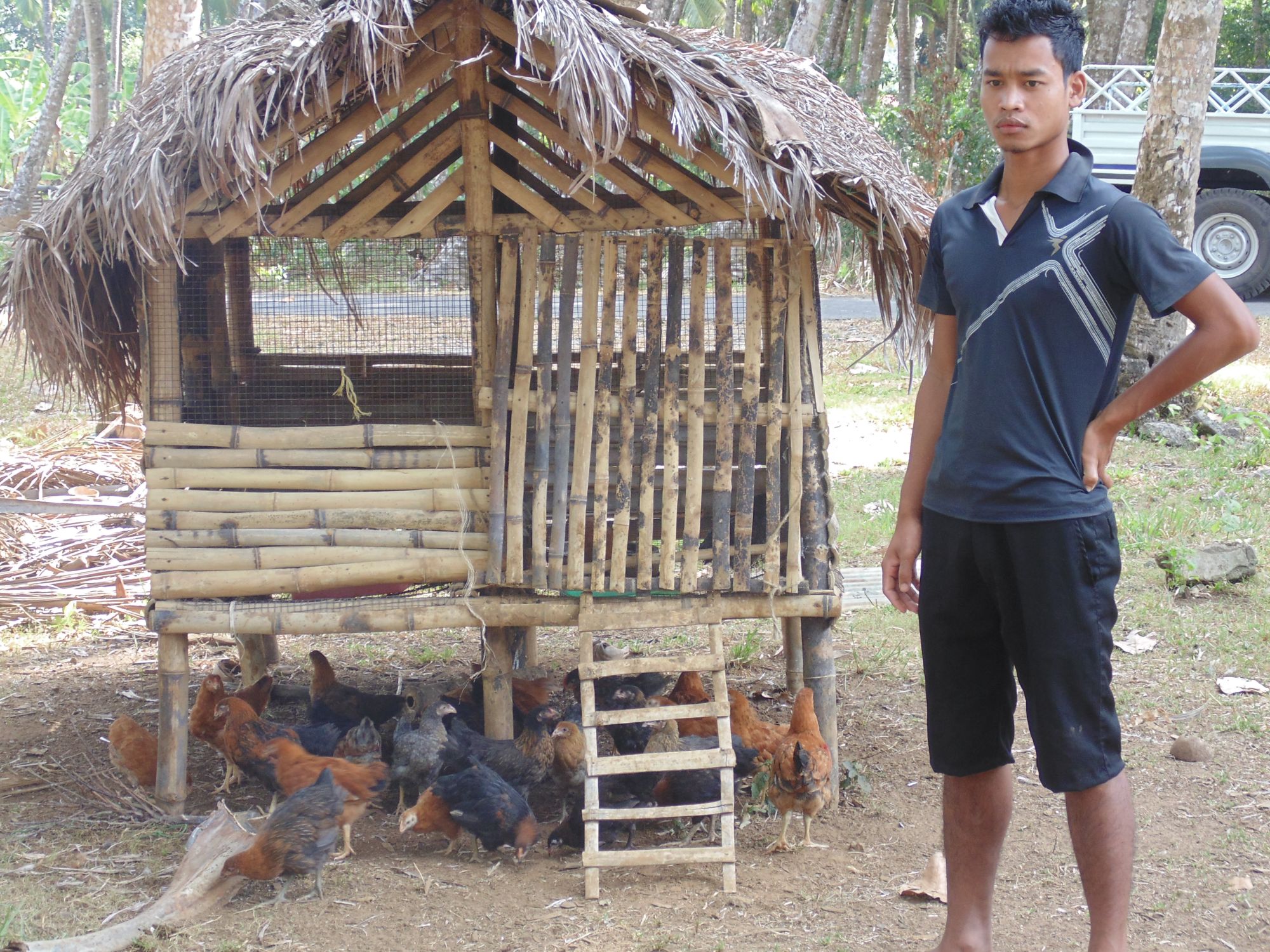SITUATION ANALYSIS
The Nicobar group of Islands is scattered over the South-east of the Bay of Bengal. They are remote and physically isolated from Andaman Islands and mainstream India. The islands are inhabited by Nicobari tribes practicing rainfed agriculture as there are no irrigation facilities. The major agriculture and allied activities include coconut, pig, and backyard poultry. The major food items like rice, pulses, sugar, oil etc. are supplied through public distribution system (PDS) due to unsuitability of land for growing such crops. The fruit crops like banana, papaya, pine apple, pandanus are grown in home gardens. There was no substantial area under vegetables except for tuber crops viz., greater yam, sweet potato, tapioca which are grown in home gardens to a limited extent. This is reflected in their food consumption pattern where these crops along with coconut and pig play an important role. The fruit and vegetables are not part of their daily diet as they have to be imported from Andaman Islands. Similarly the average egg consumption is also less than the recommended level due to non availability locally. Besides, climatic and edaphic limitations, the other limitations observed were damage of crops by stray animals like pig, lack of shelter for poultry and lack of scientific knowledge on growing crops like vegetables, pulses, maize etc. With increasing population and the need to ensure food and nutritional security, it is imperative to evolve a suitable strategy for augmenting production of fruit and vegetable crops, livestock and poultry within the limited resources of the islands. Keeping the above consideration and discussion with the tribal chiefs and villagers, a small scale IFS was implemented in selected farmer’s field at Car Nicobar.
TECHNOLOGY INTERVENTIONS
Homestead based IFS model comprising Home garden (400 m2), backyard poultry (25 no’s), pig or goat (2 no’s) and composting were given to each selected family from villages of Kinmai, Kimious, Big Lapathy, Small Lapathy, Tapoiming and Sawai at Car Nicobar. Total of 35 such interventions were made under AICRP on IFS during 2012 to 2020. Fencing for home garden was made to protect the system from stray pigs as it was found to be a major problem for cultivating annual crops. A temporary night shelter for poultry was made with local materials. Besides, the farmers were given training on various aspects of scientific crop cultivation, goat, pig, poultry farming, composting and residue recycling, value addition etc. Agricultural inputs like seeds and seedlings of various vegetables (okra, brinjal, tomato, green amaranthus, cucumber, bitter gourd, bottle gourd, sweet corn), fruits (banana, pine apple, papaya), green fodder, maize, small farm tools, coconut dehusker, coconut climber were also provided to them. Sesbania grandiflora (agathi) and Gliricidia sepium were grown as border trees to act a biofence besides serving as green fodder and green leaf manure. For composting, concrete tanks were made at a corner of the home garden for composting and residue recycling.
IMPACT / OUTCOME OF TECHNOLOGY ADOPTION
Before intervention, the tribal farmers were growing mainly banana, tuber crops like tapioca and greater yam without proper care and management. Because of the scientific intervention, the farmers produced an average 325 kg of seasonal vegetables, 75 kg greens, 200 kg fruits and 280 kg of tuber crops in a year. Besides, they also produced 700 eggs, 65 kg chicken and 3-5goat kids, 10-12 piglets in a year. By residue recycling, more than 600 kg of compost was produced in a cycle of 150 days. Because of the increased on farm production of various food items, perceptible change in diet pattern was observed indicating an enhanced food and nutritional security. The system could produce an employment of 45 -60 man days per year with an annual income of Rs.15000/- . Through residue recycling and composting, the crop nutrient demand were met which resulted in sustained production of fruits and vegetables and kept the women and youth engaged in farm activities.
INCOME GENERATION
Integrated farming system in a smaller scale will play a significant in meeting the food requirement especially vegetables, fruits etc. in remote, isolated islands of Nicobar region or in any tropical islands. The government subsidy or government programmes through line departments will play a significant role in disseminating this technology to such remote areas.
WAY FORWARD
Integrated farming system in a smaller scale will play a significant in meeting the food requirement especially vegetables, fruits etc. in remote, isolated islands of Nicobar region or in any tropical islands. The government subsidy or government programmes through line departments will play a significant role in disseminating this technology to such remote areas.







